关键词分析
分析用户在 Google 上的搜索意图
生成海量关键词建议,即时进行分组,并依据可靠指标筛选最优选项。
注册 Ahrefs
Keywords Explorer 是 Ahrefs 营销平台的一部分。
观看演示
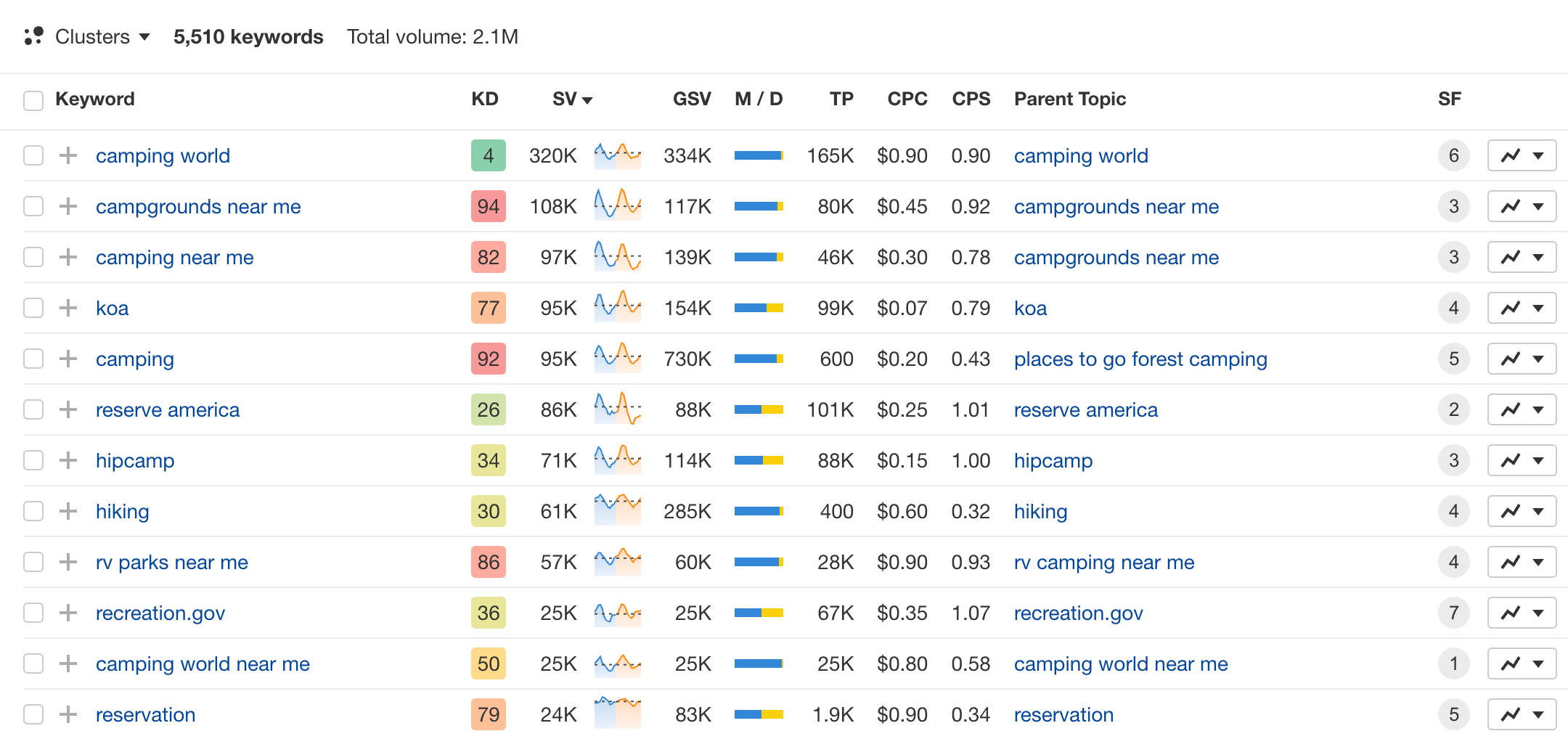
关键词指标
深度解析搜索查询数据。运用我们专有的 SEO 指标与可靠的流量数据,更快发掘高价值关键词。
美国
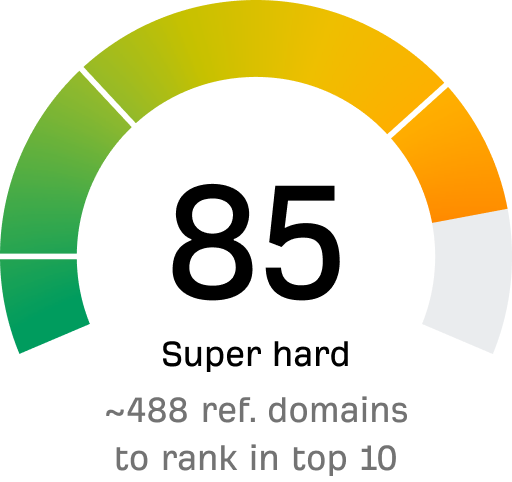
关键词难度
根据指向排名靠前页面的链接,了解关键词的排名难度。
11
K
搜索量
桌面端62%
移动端38%
46
K
全球搜索量

搜索量
获取最新的搜索量,并通过 12 个月平均搜索量预测来分析趋势。
80
K
流量潜力
查看排名第一的页面为您的关键词带来了多少流量——如果您超越它,这些流量就可能归您所有。
AI logo 生成器82K
父主题
查看是否可以在针对更广泛主题的同时为您的关键词排名。
关键词索引
浏览我们拥有数十亿关键词的数据库。我们将为您精准筛选出数百亿关键词中的热门之选。
28.7B
从总共发现的 110B 个中
筛选出的关键词
筛选出的关键词
2.5
B
仅在美国的关键词
217
位置
1
关键词映射
借助 AI 生成关键词,数秒内即可获取海量建议并即时完成集群分组。
使用 AI 集思广益挖掘种子关键词 —— 只需输入主题,创意即刻涌现。
利用现成预设快速获取关键词优势,或保存自定义筛选条件。
发现关键词创意无止境。依托六种报告类型,为任何主题挖掘相关搜索词。
即时聚类关键词,按父主题或相关词自动分组 —— 彻底告别重复项与相似关键词的繁琐筛选。
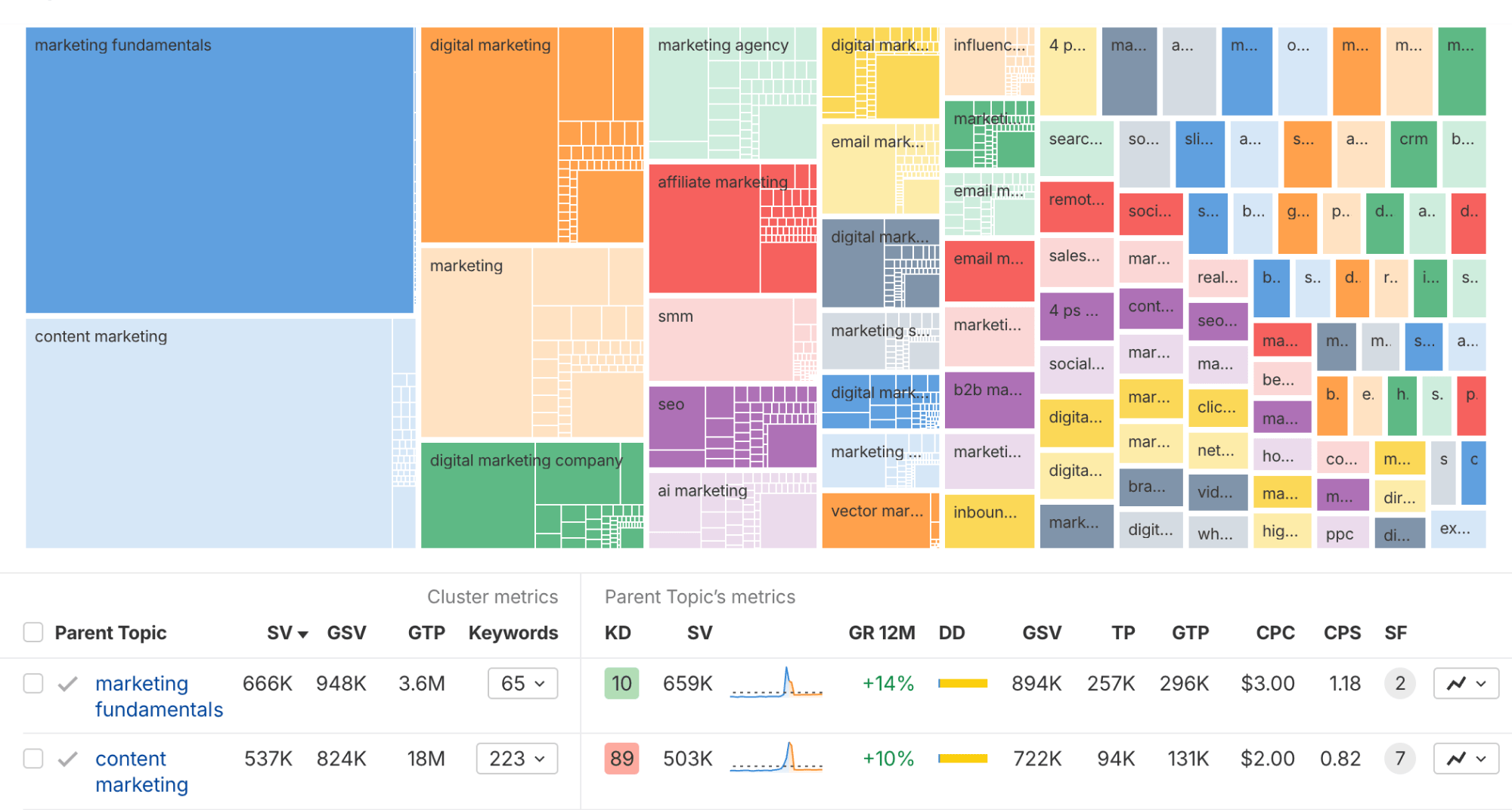
大多数关键词聚类工具需耗时数小时才能完成分组,而 Keywords Explorer 可即时完成,为您节省宝贵时间。
2
关键词分析
深入分析关键词:评估排名难度,查看搜索量、真实流量潜力,并审查 SERP。
通过关键词难度(KD)指标评估排名难度 —— 得分越低,越可轻松进入前 10 名。
我们仅根据排名靠前页面的平均反向链接数量来计算 KD 分数。
我们仅根据排名靠前页面的平均反向链接数量来计算 KD 分数。
结合当前与未来搜索趋势,锁定常青关键词。
按国家查看搜索量,优先确定目标市场。
评估主题的“流量潜力”。精准预测排名第 1 时可获得的流量。
运用“父主题”瞄准更广泛的话题,同时保持在目标关键词中排名。
像专业人士一样审查当前 SERP。通过核心 SEO 指标分析排名靠前的网页 —— 包含反向链接、流量及流量价值,以洞悉其页面排名原因。
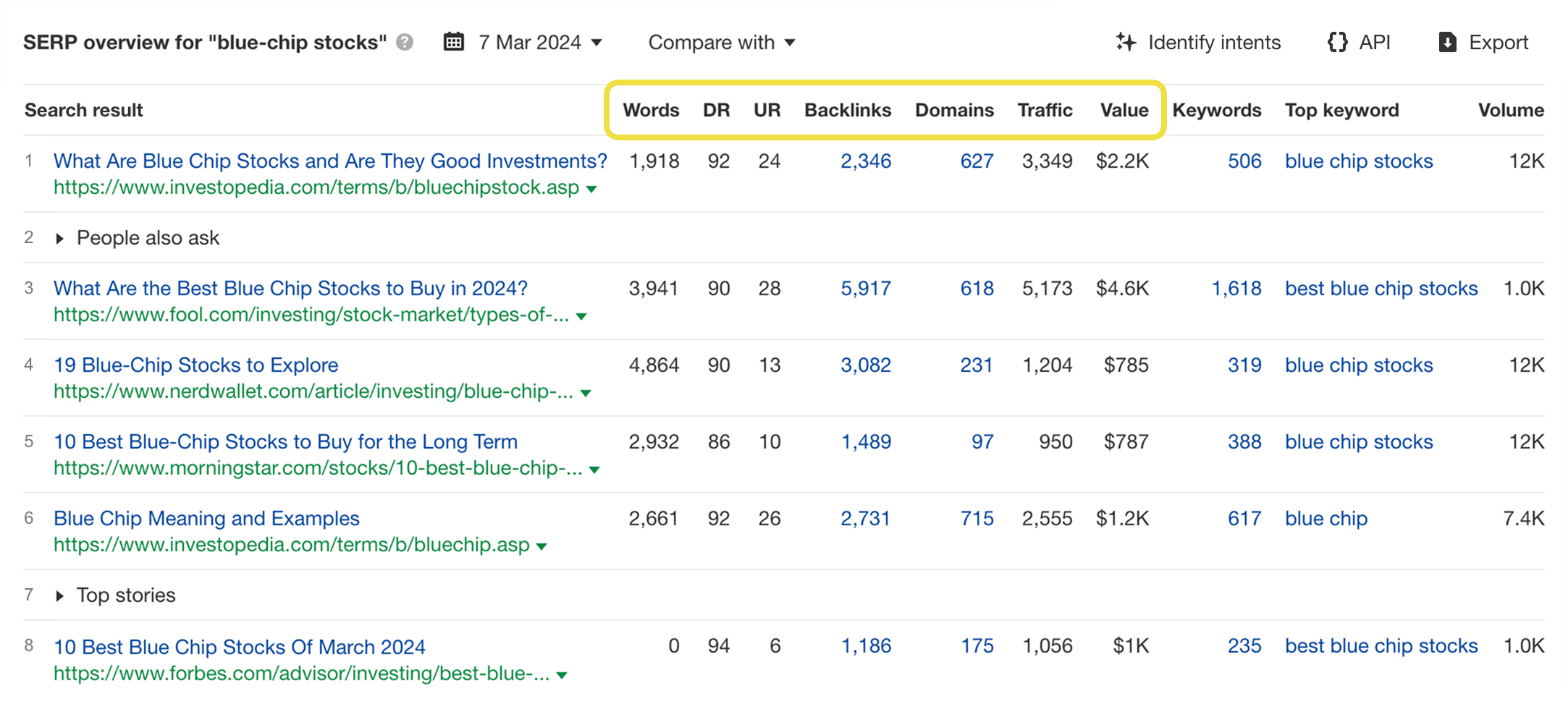
查看历史排名,评估 SERP 波动性,并洞察搜索意图的长期变化趋势。
查看完整广告历史以评估关键词的商业价值和过往投放者。
对比移动端与桌面端搜索量,为内容策略提供数据支持。
3
关键词定位
精准定位关键词。运用 AI 识别搜索意图,并排对比 SERP,并将关键词创意整理成列表。
发掘轻松取胜的关键词。针对弱势网站排名靠前的竞争关键词,成功跻身 SERP。
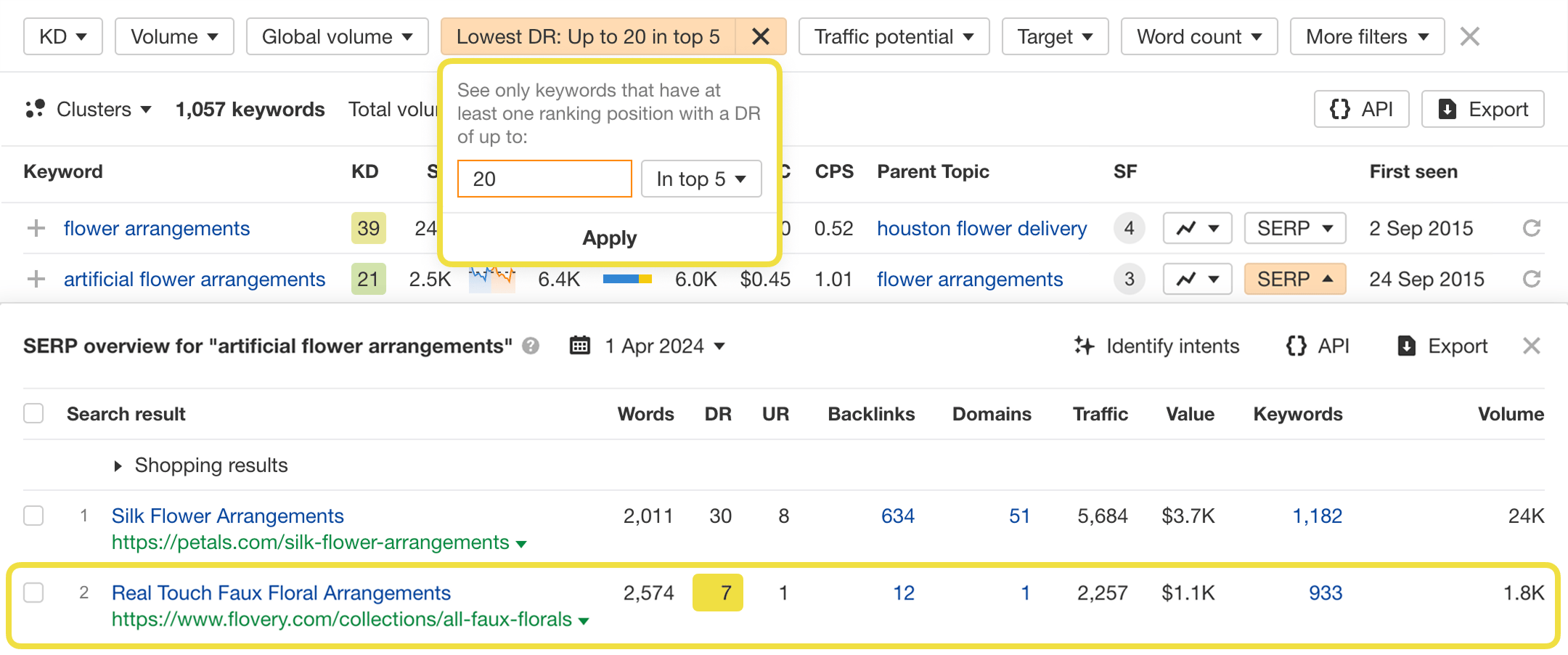
洞悉海量关键词的搜索意图,明确优先布局的目标主题。
利用 AI 深度解析 SERP,精准揭示任何关键词背后的真实搜索意图。
并排对比 SERP。精准追踪相同或不同关键词随时间推移所呈现的搜索意图变化。
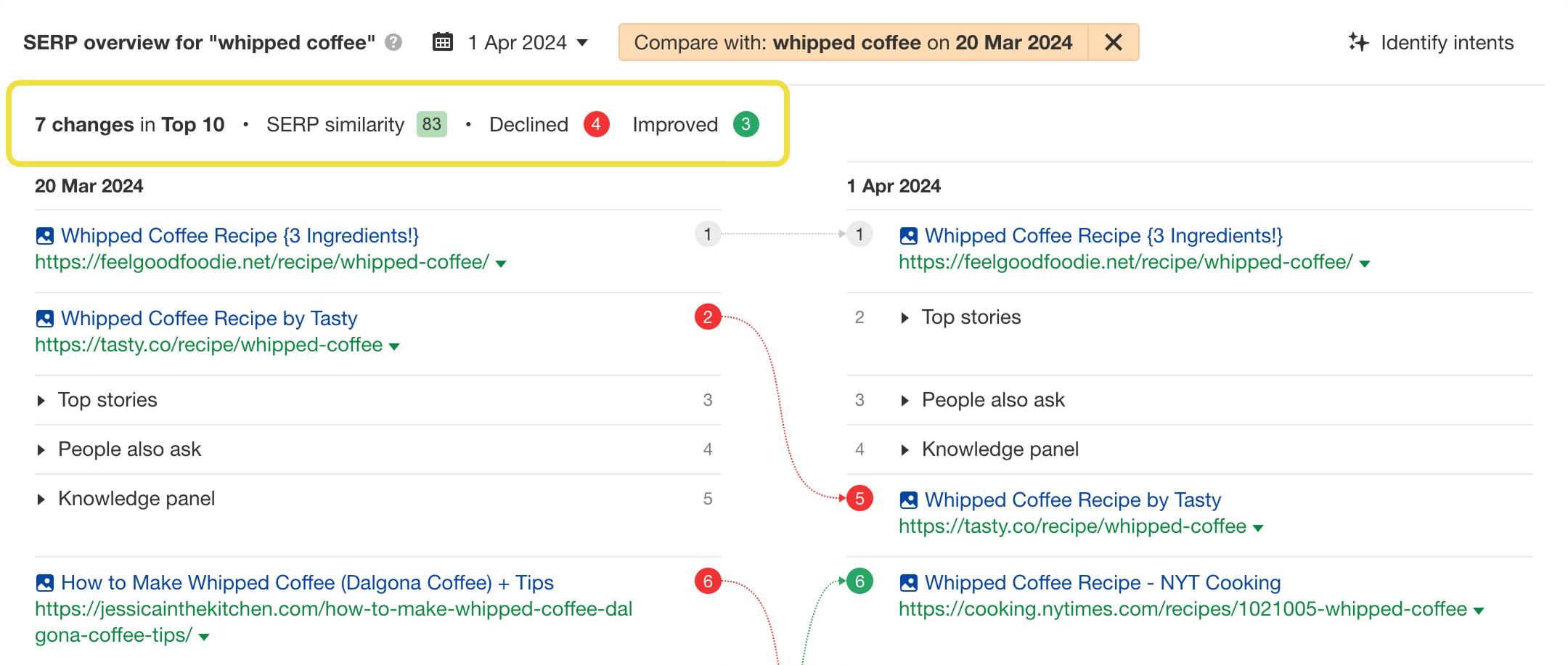
将关键词创意与当前排名交叉对比,发现内容空缺。为缺失的关键词创建新页面,并更新排名较低的内容。
将关键词创意整理成列表便于细分,并可一键查看其各项指标。
跟踪自然搜索流量的声音份额(SoV)查看哪些域名和页面为目标关键词获取最多搜索流量。
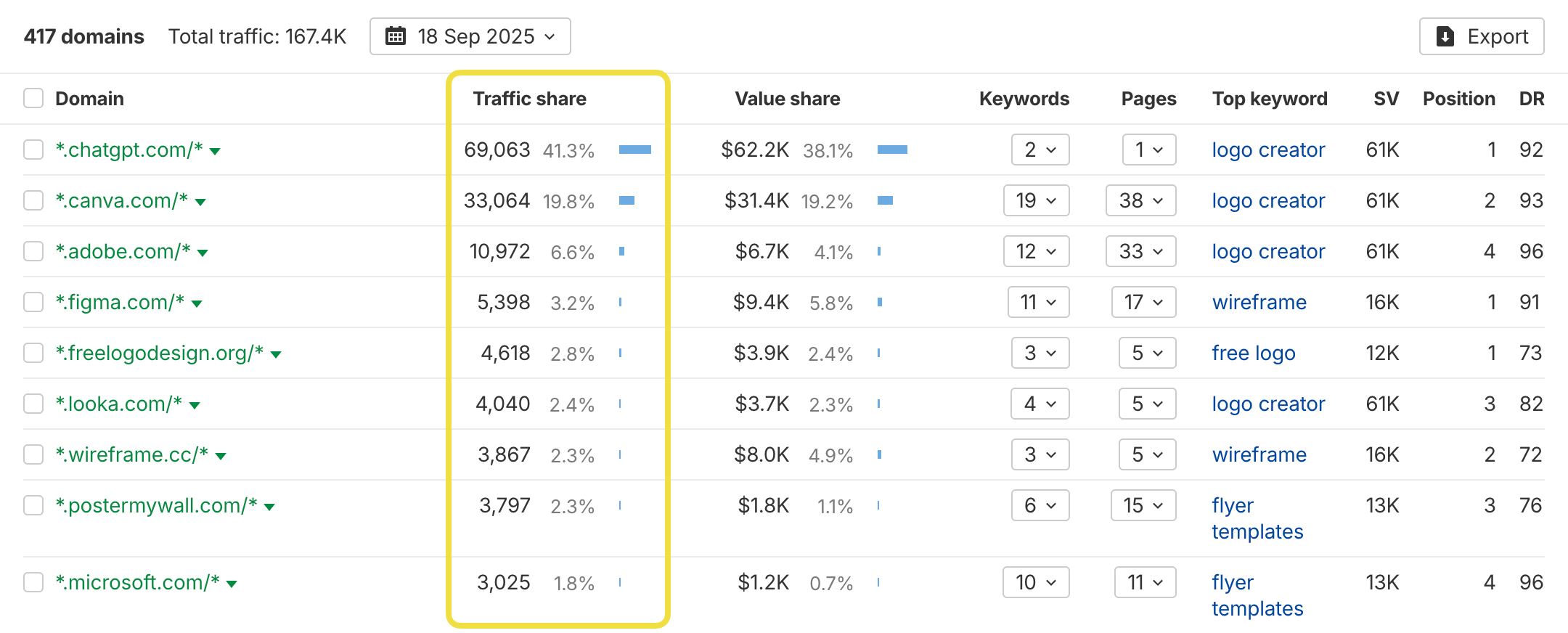
关键词是 SEO 的基石:一旦选择不当,将会耗费大量时间与资源。
想在 30 分钟内快速掌握关键词分析吗?快来查看我们的关键词分析新手指南 →
即刻发掘下一个关键词机会。提升 Google 排名,抢占 AI 搜索先机。
21142 users joined Ahrefs in the last 7 days
注册 Ahrefs